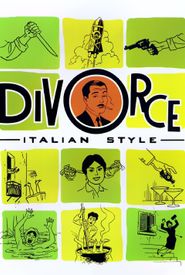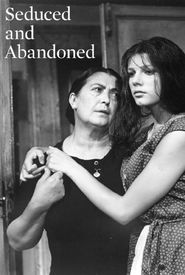Pietro Germi, a celebrated and accomplished Italian thespian, scriptwriter, and filmmaker, was ushered into this world on September 14, 1914, in the picturesque city of Genoa, located in the picturesque Liguria region of Italy, to a family of modest means, with his parents hailing from the lower-middle class.
Germi's entry into the world of filmmaking commenced at Rome's esteemed Centro Sperimentale di Cinematografia, where he pursued a comprehensive education in the art of acting and directing. In order to sustain himself during his formative years at school, Germi diversified his skills by working in various capacities, including that of an extra, bit actor, assistant director, and writer. This multifaceted approach not only honed his craft but also instilled in him a keen sense of versatility and adaptability.
As Germi's academic tenure drew to a close, he finally had the opportunity to showcase his directorial prowess with the release of his debut film, Il testimone, in 1945. This milestone marked the beginning of a long and illustrious career, replete with critical acclaim and artistic innovation.
Person Bio:
Pietro Germi was born on September 14, 1914, in Genoa, Italy. He is best known for his work as a film director, screenwriter, and actor. Germi's career spanned over three decades, during which he directed some of the most iconic Italian films of all time. He is particularly renowned for his nuanced portrayals of everyday life, often tackling themes such as social class, morality, and the human condition.
Throughout his illustrious career, Germi received numerous accolades, including several Nastro d'Argento awards and a nomination for the Academy Award for Best Foreign Language Film. Despite his passing in 1974, Germi's legacy continues to inspire and influence generations of filmmakers and artists.
The early cinematic endeavors of Pietro Germi were significantly shaped by the Italian Neorealist movement, a style that emphasized the depiction of everyday life and the struggles of the common man. This influence is particularly evident in his early work, where he often explored social dramas that tackled pressing issues affecting the lives of individuals with Sicilian heritage.
These early films, imbued with a strong sense of social responsibility, served as a reflection of Germi's deep connection to the Sicilian people and their struggles.
As the 1960s unfolded, Germi's cinematic prowess transcended geographical boundaries, yielding a plethora of critically acclaimed films that left an indelible mark on the industry. Among his most notable works during this period were Divorce, Italian Style, Seduced and Abandoned, and Signore e Signori, the latter of which would go on to garner widespread recognition and accolades.
Signore e Signori, also affectionately known as The Birds, the Bees and the Italians, earned Germi a double nomination at the Academy Awards, in both the directing and writing categories. Ultimately, his remarkable writing skills would be recognized with a coveted Oscar, a testament to his mastery of the craft.
Furthermore, Germi's cinematic triumphs did not go unnoticed at the prestigious Cannes Film Festival, where he would take home the esteemed Grand Prize for his work on Signore e Signori. This remarkable achievement served as a fitting culmination to a decade that cemented Germi's status as a visionary filmmaker, pushing the boundaries of cinematic storytelling and leaving an enduring legacy in the process.
Next person biography:
Pier Paolo Pasolini's filmmaking counterpart, Pietro Germi, was a multifaceted creative force who effortlessly juggled the roles of collaborative scriptwriter and occasional actor, showcasing his versatility by making appearances in some of his own cinematic projects.
Tragically, Germi's life was tragically cut short, as he succumbed to the devastating effects of hepatitis on December 5, 1974, in the Eternal City of Rome, leaving behind a lasting legacy in the world of cinema.



















